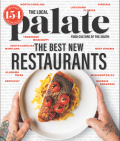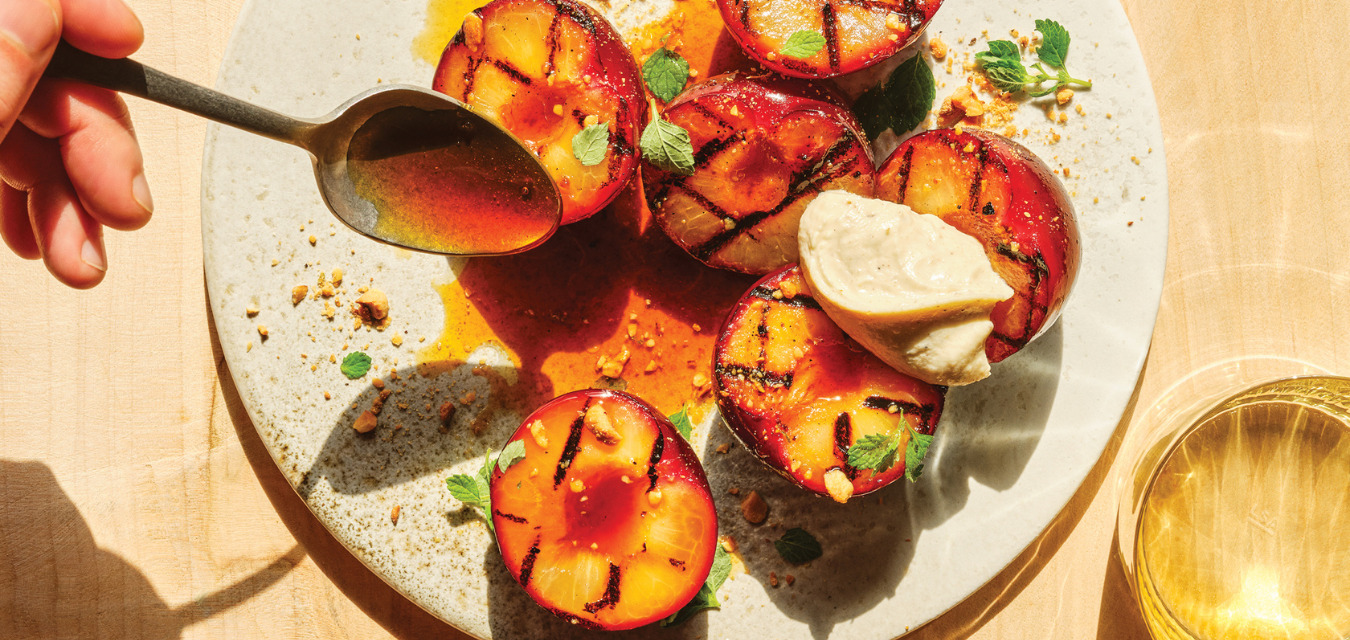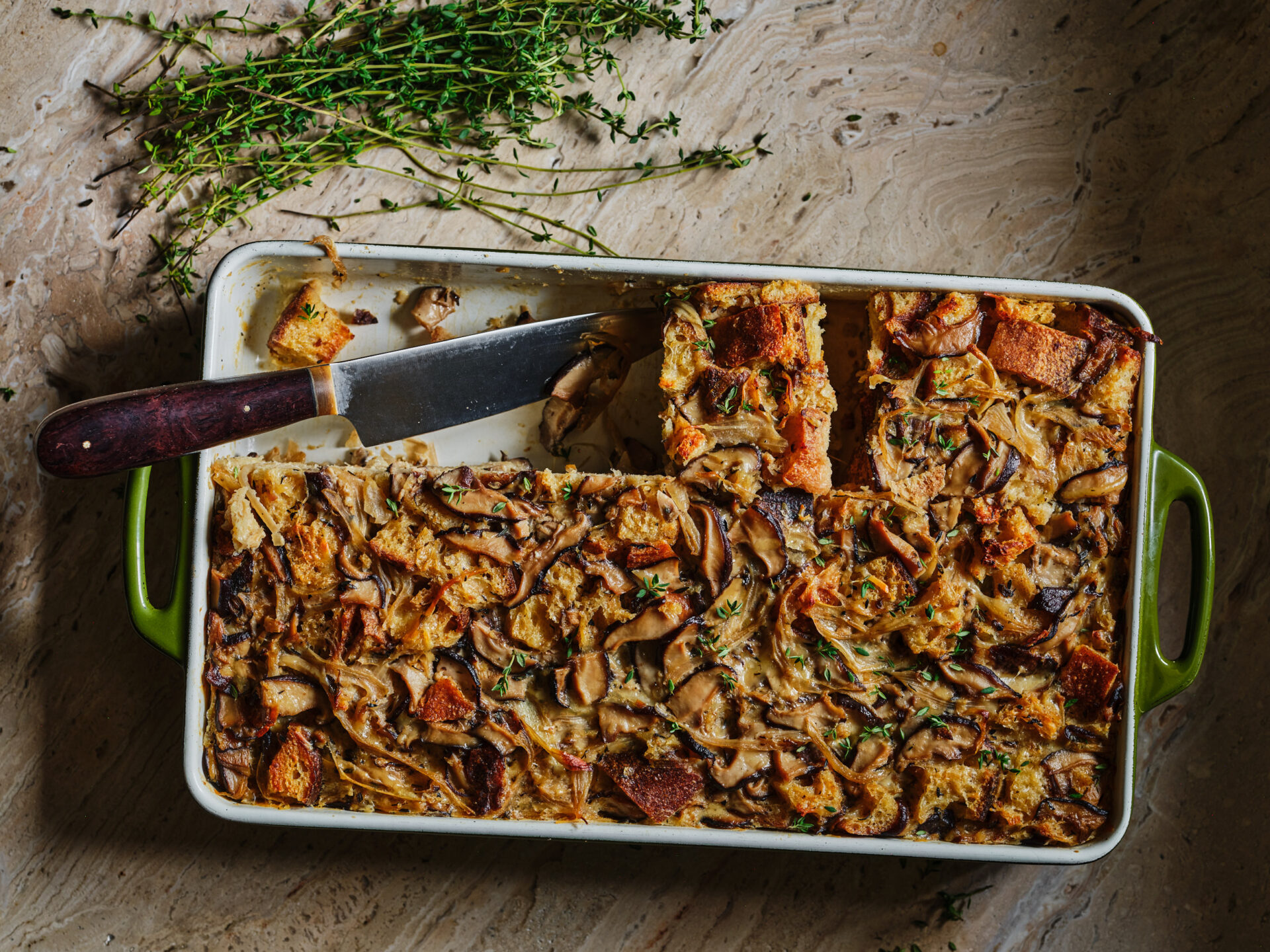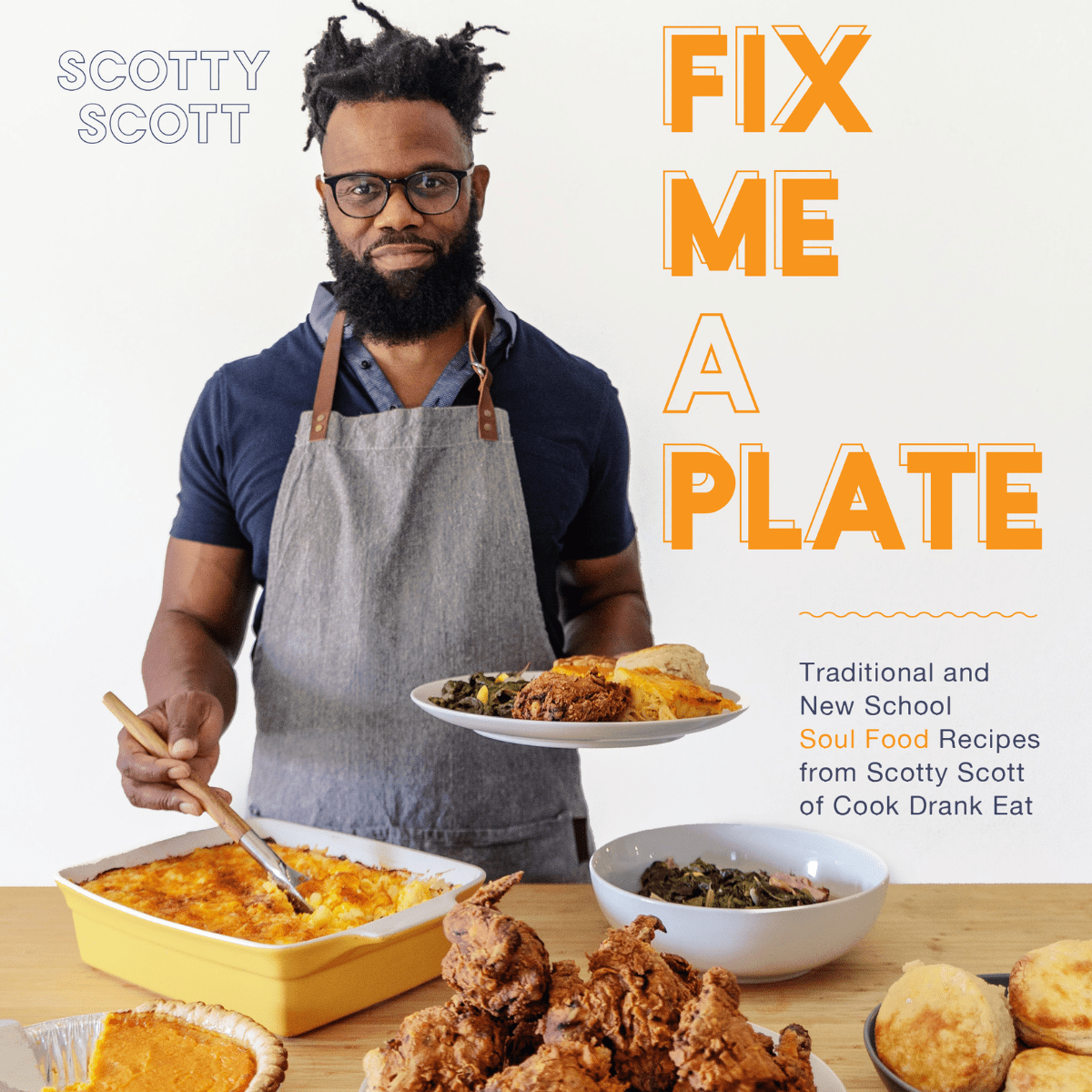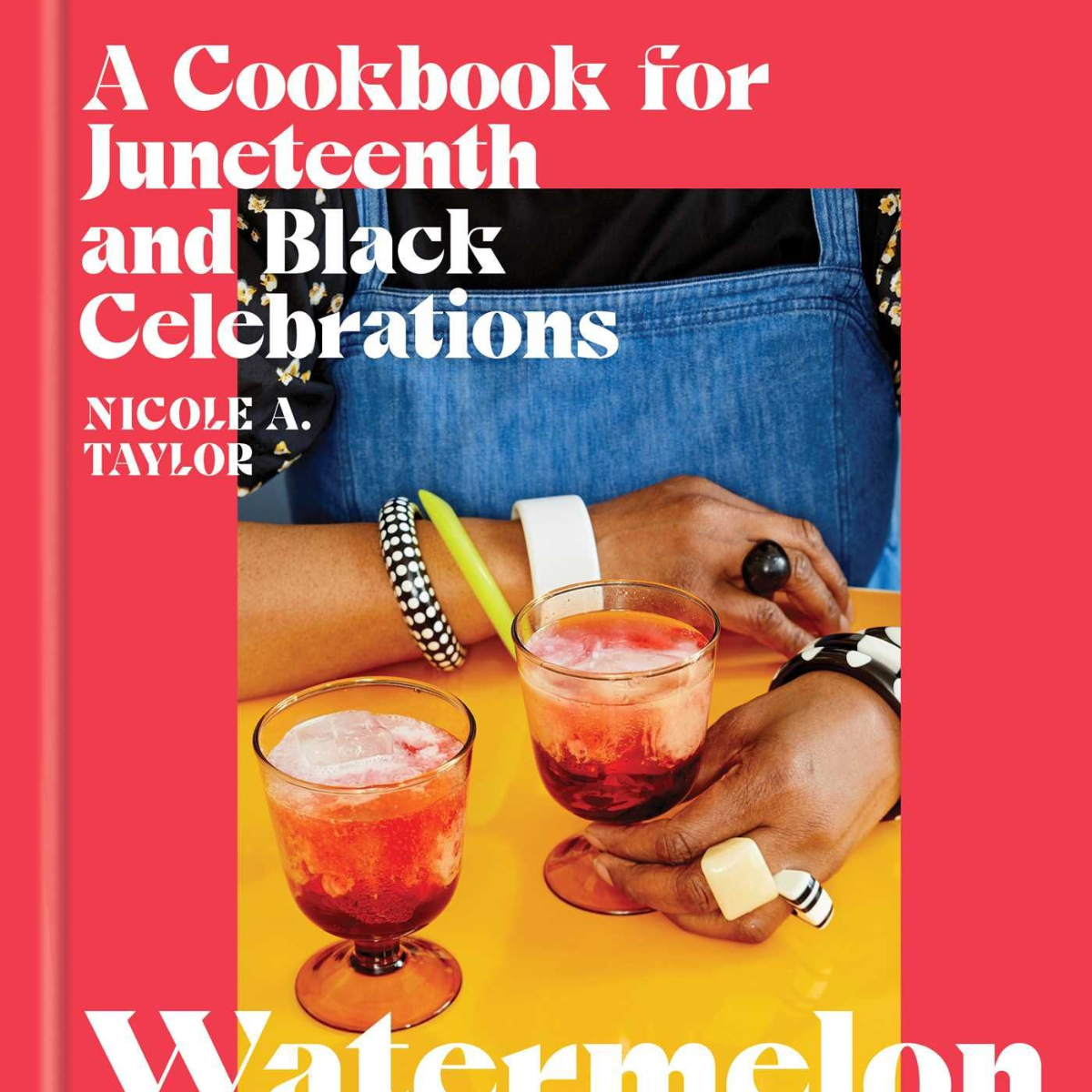Chef William Dissen divulges the impetus behind his new book, Thoughtful Cooking: Recipes Rooted in the New South
When he was conceptualizing and writing Thoughtful Cooking: Recipes Rooted in the New South (Countryman Press, 2024, now available for preorder), chef William Dissen of the Market Place in Asheville, North Carolina, wanted to create a cookbook that moved away from the ideas of convenience and speed.
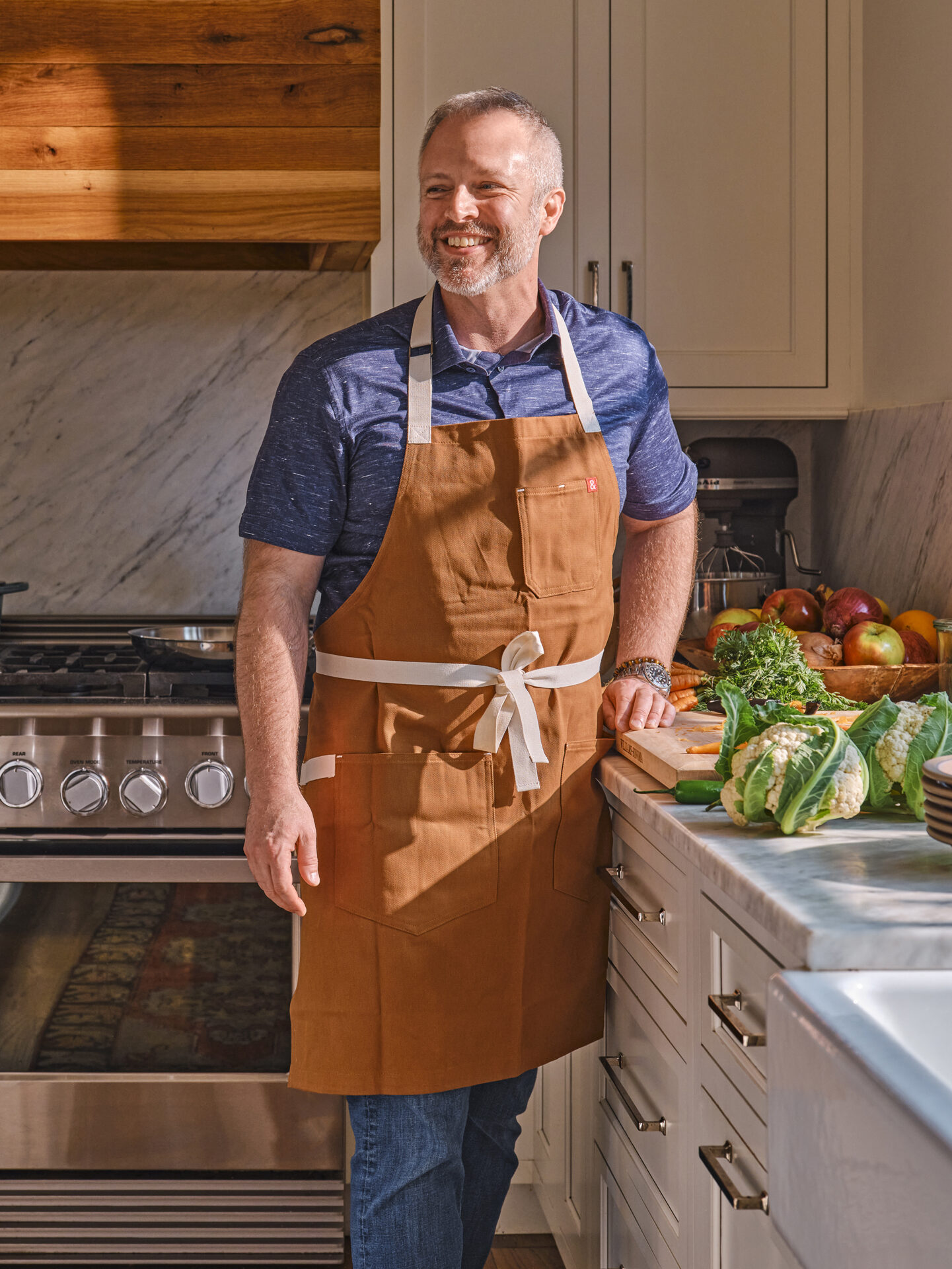
“Writing this book was a vibe shift for myself,” he says, noting that it helped him deliberately slow down and choose his focus, both in the kitchen and in life: He recently sold his acclaimed Charlotte restaurant, Haymaker, in what he describes as “another needed shift.” He’ll now dig in deeper with the Market Place restaurant, celebrating its 45th anniversary in 2024.
For Dissen, cooking thoughtfully involves choosing recipes and ingredients based on the season, as well as mindfully using scraps and leftovers, such as making corn stock from corn cobs and saving bacon fat to use in a bourbon cocktail. But the theme that prevails through Thoughtful Cooking is taking joy in the process—and the revelation that slowing down to appreciate what the season has to offer, and making it shine in a recipe, can truly feed the soul as well as the body.
TLP: You discuss the concept of “eating is activism” in the cookbook—what have been highlights on your journey to realizing that?
William Dissen: My grandparents were farmers and Appalachian folks who lived off the land. They didn’t do all these things—the farming and the beekeeping and the canning and pickling and fermenting and curing—because it was like the Brooklyn hipster DIY trend. They did it because they were meager folks who lived up in the holler, and that’s how you fed your family.
Watching them and then seeing their approach to the land and the food—if they dumped a bunch of fertilizer on their land, sure, they might get a great crop that year. But are they gonna be able to produce a great crop the next year? So they farmed sustainably because that’s how you take care of the earth. We need to take care of the planet in order to keep having these ingredients for years to come. If I had this conversation with my grandparents, they’d kind of laugh at me and be like, that’s just how you do it.
TLP: In this cookbook, you pair the concepts of slowing down and thoughtfulness with spontaneity and being in the moment. How do you marry these different approaches?
William Dissen: I think slowing down is important. Take it from someone who’s always in fifth gear, the pedal to the floor. That’s what cooking has always been for me—it’s an opportunity to slow down. Because you have to focus on the task at hand. When you’re trying to cook delicious food, you have to push off what’s around you and distill your vision down to what you’re working on.
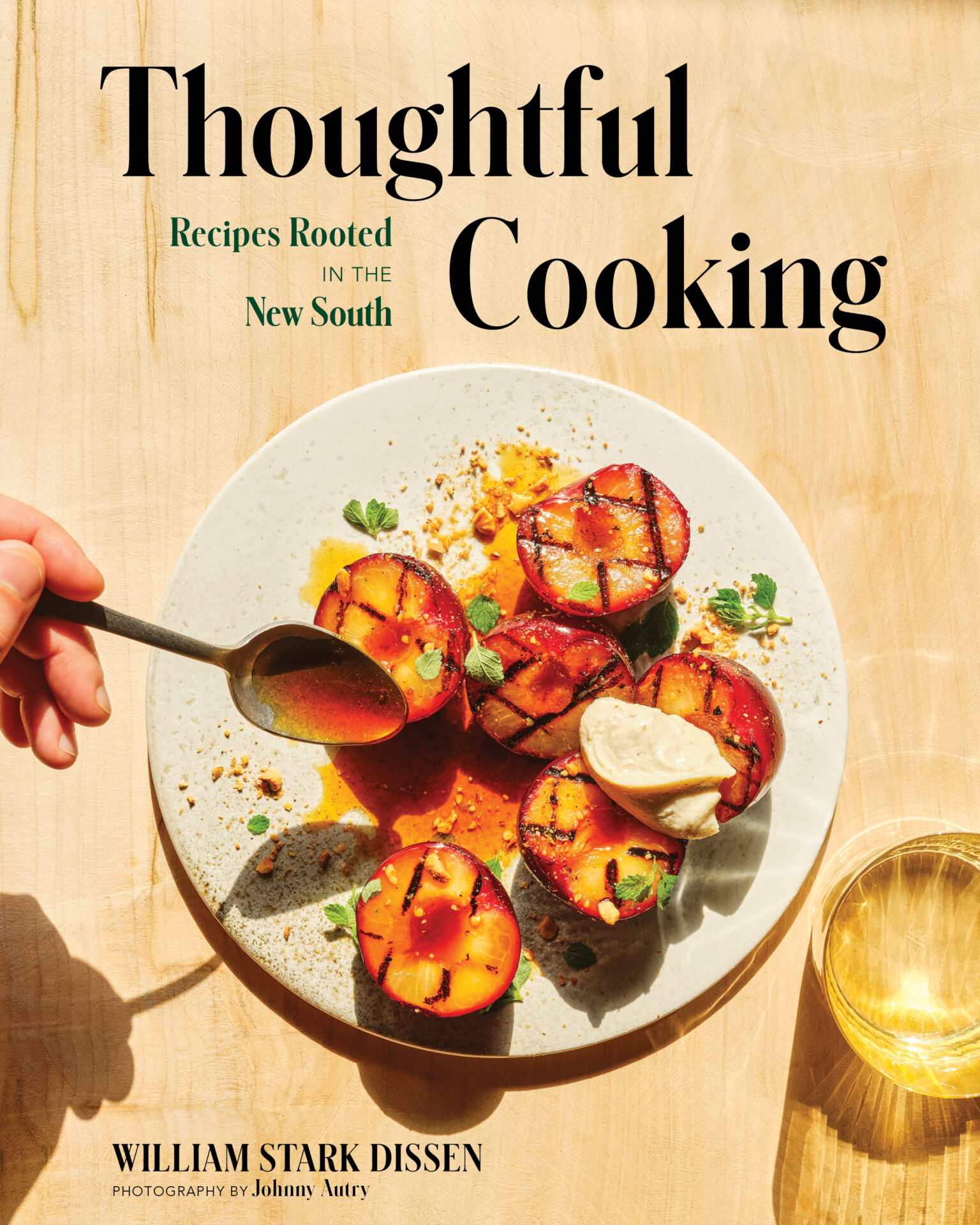
But then, in the middle of all that, you have variables: that spontaneity of knowing how to evolve your cooking based on what the product is. If you’re at a farmers market, if you’re at the grocery store, if you’re in your garden, and something just looks delicious and it’s ripe and ready to go, you’re probably going to gravitate toward that and want to cook with it. So you have that foundation of cooking so that you can also have that spontaneity and be adaptable.
TLP: You’ve organized Thoughtful Cooking by season—do you have a favorite season for cooking?
William Dissen: I love all the seasons, because each brings different flavors and nuances. But my favorite time of year to cook is the springtime because we go from these deep heavy-style dishes and then the world comes back to life. It’s warming up outside and the world starts to turn green again. The asparagus and the ramps and the spring greens, the strawberries—it’s just such an exciting time of year because the world’s coming back from hibernation.
TLP: How do you translate between cooking at home, developing restaurant menus, and writing a cookbook?
William Dissen: I’m always looking for flavors that work together. The way I look at cooking is having those formulas and experimenting and finding flavors that work—and then trying to find ways to tweak it to make it better. Are there any other ingredients you can add to that equation that make it better? Are there things you can subtract from that equation to simplify it to make it better? I’m always pushing the boundary to experiment on what flavors I love and what flavors my family loves and what flavors the guests in my restaurants love. That’s really my approach to cooking: learn the foundation and then start experimenting.
TLP: Why do you think that cooking and eating thoughtfully, taking the time and effort, is so important?
William Dissen: For me being thoughtful about cooking and being in touch with the world around me and the seasons has allowed me to really slow down and be more in touch with myself. But as somebody who eats thoughtfully, do I eat fast food on the road sometimes? Certainly. Do I eat pizza and drink beer? Sure. But I also try to make sure that I’m balancing out my life with other aspects and taking time for myself, my family, and my community. And I think trying to find that balance is really what being a thoughtful eater is.
I think about the days where I’m running to get home and cook dinner for my kids. And it’s like a Chopped contest, right? Other days, like a Sunday where you put a roast in the oven and maybe you’re peeling vegetables and you open a bottle of red wine, your blood pressure drops a few points, and the family comes in the kitchen, everyone’s cooking and having a good time and they listen to music, and people are talking about life. And all of a sudden, there’s this moment of happiness.
Get the Recipe: Shiitake Mushroom Spoonbread
Keep Reading
Bookshelf
Bookshelf: Fix Me A Plate
Online cooking personality Scotty Scott discusses soul food, social media, and his recipe research and development for his new cookbook Fix Me a Plate.
Bookshelf
Bookshelf: Nana’s Creole Italian Table
Elizabeth Williams’ New Orleans cookbook, Nana’s Creole Italian Table, invites home cooks to experience Sicilian-influenced Cajun-Creole food.
Bookshelf
A Juneteenth for the Twenty-First Century
Nicole Taylor debuts Watermelon & Red Birds in time for Juneteenth 2022 with 75 recipes and stories that honor Black traditions and celebrate future generations.
